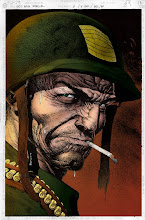 Today we begin the Advent or the coming of Christ to Earth. I wanted to begin our family celebration by looking at the Chalcedonian Creed, talking about Christ's nature, and the importance of the incarnation. This creed was adopted at the Fourth Ecumenical Council, held at Chalcedon, located in what is now Turkey, in 451, as a response to certain heretical views concerning the nature of Christ. It established the orthodox view that Christ has two natures (human and divine) that are unified in one person. As the church grew, heresies also grew, and the early Christians needed to clarify the defining boundaries of the faith.
Today we begin the Advent or the coming of Christ to Earth. I wanted to begin our family celebration by looking at the Chalcedonian Creed, talking about Christ's nature, and the importance of the incarnation. This creed was adopted at the Fourth Ecumenical Council, held at Chalcedon, located in what is now Turkey, in 451, as a response to certain heretical views concerning the nature of Christ. It established the orthodox view that Christ has two natures (human and divine) that are unified in one person. As the church grew, heresies also grew, and the early Christians needed to clarify the defining boundaries of the faith.
We, then, following the holy Fathers, all with one consent, teach men to confess one and the same Son, our Lord Jesus Christ, the same perfect in Godhead and also perfect in manhood; truly God and truly man, of a reasonable [rational] soul and body; consubstantial [co-essential] with the Father according to the Godhead, and consubstantial with us according to the Manhood; in all things like unto us, without sin; begotten before all ages of the Father according to the Godhead, and in these latter days, for us and for our salvation, born of the Virgin Mary, the Mother of God, according to the Manhood; one and the same Christ, Son, Lord, only begotten, to be acknowledged in two natures, inconfusedly, unchangeably, indivisibly, inseparably; the distinction of natures being by no means taken away by the union, but rather the property of each nature being preserved, and concurring in one Person and one Subsistence, not parted or divided into two persons, but one and the same Son, and only begotten, God the Word, the Lord Jesus Christ; as the prophets from the beginning [have declared] concerning Him, and the Lord Jesus Christ Himself has taught us, and the Creed of the holy Fathers has handed down to us.
The Incarnation lies at the heart of the gospel. Any attempt to redefine it is an attempt to replace Christianity with another religion and Jesus with another Christ. For if Jesus Christ is not truly human, then we have in Him no Mediator or Substitute. If He is not a divine Person, then His death was mere martyrdom and no help or value to us who stand in need of atonement. In either case, His salvation is inadequate. We must find another Savior, one more relevant and useful. If Jesus Christ is a man who became God, then other men can become God. Salvation becomes a matter of works, of moral effort or magical manipulation, and its goal is deification. If Christ's two natures are confused or if one is absorbed into the other, then there is no final distinction between Creator and creature. Satan was right: God is fundamentally no different from man, and we are all potentially or actually divine. "Who will play God?" becomes a legitimate question.
The Christology of Chalcedon recognizes an infinite gulf between the being of God and that of His creatures. Man cannot become God; God became a man exactly once, and even there, in the Person of Christ, there is no mixture or confusion of being. Deity remains deity; humanity remains humanity. The political and sociological implications of this doctrine are profound.
Chalcedon leaves no room for private or collective mysticism. Put simply, no man, group of men, or human institution can become God or act with divine sovereignty. None of us is God. None of us will become God. Our thoughts, actions, and feelings will never be anything more than human. Salvation is not deification, but the restoration of man to his proper role within creation. Jesus Christ alone is the Son of God; He alone has all power in heaven and earth. All human authority is, therefore, necessarily derivative, limited, and under law. Chalcedon is thus crucial to constitutional, decentralized government and to Western liberty.
Furthermore, the Incarnation means a good creation. The Son of God took to Himself a body "and was united with the Dust and made it glorious forever." He did not abhor the Virgin's womb, nor does He abhor our humanity, our creatureliness. Whereas every other religion tries to rescue man from creation and history, Biblical Christianity says that God came into His creation and united Himself with it forever.
The Formula of Chalcedon answers the mysticism and pietism that is so prevalent in the modern church. It answers statism and political liberalism. It points us to one Savior, one Lord, and bids us place all our confidence in Him.





























































.svg.png)




